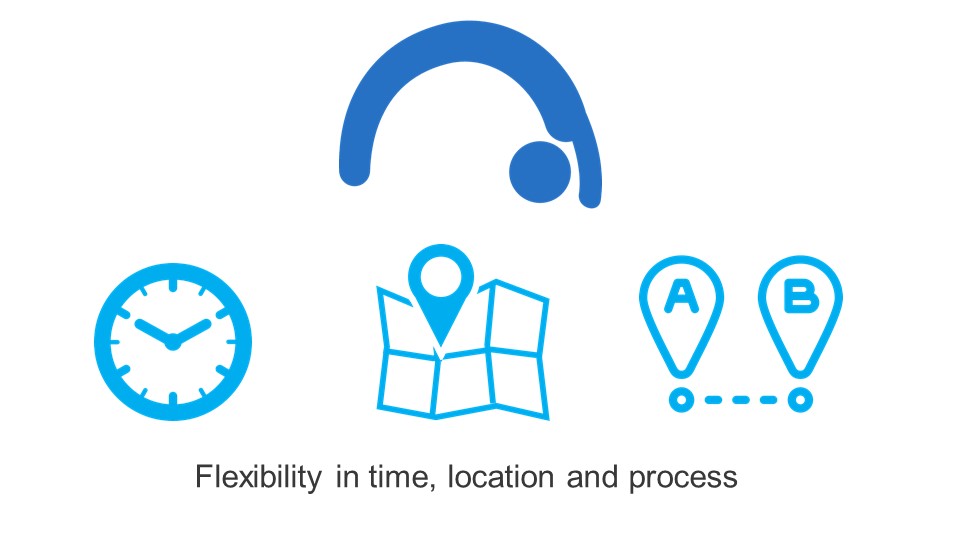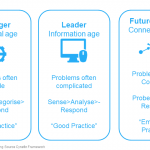 A key aspect of the future of work is the increased expectation of far more flexibility; flexibility in when we work, flexibility in where we work and flexibility in how we achieve what is required.
A key aspect of the future of work is the increased expectation of far more flexibility; flexibility in when we work, flexibility in where we work and flexibility in how we achieve what is required.
In a previous post I explored why this was the case and why it’s consistently one of the top things (alongside fair pay and training and development) that people look for when looking for a new position.
Increased flexibility can present some challenges for leaders and managers – challenges that require tweaks to attitudes, systems, leadership behaviours and cultures. Approaches I’ve come across that help in leading flexibility include:
Don’t see it as a loss of control
It’s often not the first thing manager’s mention, but when I work with them and they tell me how they really feel when greater flexibility is introduced, their biggest challenge is overcoming their feeling of loss of control. This often stems from years of conditioning from the very first days we were made ‘manager’ or ‘supervisor’. Like many future of work changes, the starting point as a leaders is to recognise and manage how you feel about the changes!
A decent performance management system and culture
Yahoo CEO Marissa Mayer took a huge amount of flak a while ago for banning working from home, but in my opinion, she went after the wrong problem. It would appear that Yahoo had a pretty poor performance management approach and culture – people weren’t clear what was expected from them in terms of hard outcomes, and importantly, there was a weak culture of holding people to account. If that was in place, then the frustrations and inefficiencies that Mayer perceived would not have been there. This of course requires a leadership population who are skilled and willing to have constructive performance conversations, as well as simple and clear ways of tracking how people are getting stuff done.
We need to hire people who are naturally self-directing
With increased flexibility comes responsibility. We need people in our organisations who can organise their time, not get distracted, and work to a deadline. We should support people helping them develop time management skills
We need to hire people who can filter out noise and focus on what needs doing
With the whole world available on every screen, it is easy to waste time watching cat videos. We need to value people who can filter out what is important and focus on the task in hand. We should be teaching kids these skills in schools.
Have a clear purpose, mission and set of values
With much greater self-direction, people need filters to judge their actions and decisions against. Having a simple, clear set of values really helps here. And remember- having a cause that people can get behind is a key driver of discretionary effort.
We need to trust people
Treat people like kids and sooner or later they will play up. Trust them, and they are more likely to behave as adults. There is always one, but don’t let that be a reason not to trust the majority. With decent performance management they will either step up or be moved on anyway.
‘Structured’ flexibility
Some roles, usually customer facing, just don’t lend themselves to being totally flexible. Opening hours are opening hours, and customers expect people to be able to help them quickly and when they need help. There’s typically less scope for being flexible in direct customer facing roles, but there is nothing to stop more ‘structured’ flexibility (if that is not a contradiction). Organisations have had successes with transparent, self-managed rotas, with job shares and similar forms of flexibility where the employee doesn’t feel completely locked into ridged hours.
Team check-in times
If you have team members working across different hours and locations, it can be hard to find time to check in and co-ordinate. Again smart teams agree some structures to help, including, for example, ensuring they are available for a skype catch up at say 11am or 2pm each day. Whether a call is needed depends on what’s happening, but everyone knows to be available and online should the whole team need to dive on to a particular issue.
Get some face time
In another post, I talked about the universal value of spending face to face time with each other. This is increasingly difficult if we are all over the place and working different hours. Again organisations report that making the effort to get together periodically and spending enough time together really helps. Sometimes the key to remote, flexible working is to book some flights or train tickets!
I’d love to hear your experiences of leading teams more flexibly. Drop me a line at simon@simonwalker.org
If you’d like to inspire and enable your leaders to better engage their teams by embracing the future of work, then call Simon on 020 3488 0464 or email simon@simonwalker.org








